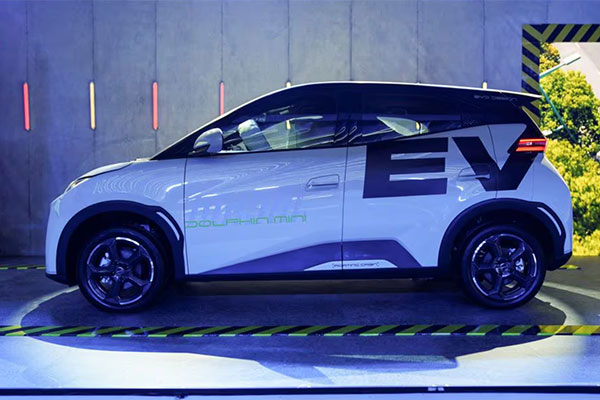As global electric vehicle (BEVs) market competition intensifies, the European Commission’s latest initiative could further tighten trade relations with China and Europe.According to Reuters reports on Tuesday, the European Commission has issued an emergency notice announcing its plans to customs registration of pure electric vehicles imported from China, as part of its counter-subsidy investigation.This measure could lead to retroactive tariffs imposed on electric vehicles from China in the future.

The main reason behind this initiative is that since the European Union launched a counter-subsidy investigation into Chinese electric vehicles in October last year, China has been paying the EU more than one million euros.electric vehicleAccording to official EU data, the EU imported a total of 177,839 Chinese electric vehicles from October 2023 to January 2024, with monthly average imports rising by 14% over the same period last year, far above the average growth rate during the Anti-Subsidy Survey.
The European Commission said there is sufficient evidence that Chinas electric car industry is receiving state subsidies, which may violate the principle of fair competition.If the findings confirm this, the EU may impose trace tariffs on these registered imported vehicles to balance the market.
The notification clearly states that customs registration measures will be made for new battery-powered electric vehicles from China with nine seats or less and powered entirely by an electric motor. It is worth noting that motorcycle products are not covered by this investigation. This registration procedure is designed to ensure that previous imported vehicles can be traced back and taken measures if a final decision is made to tax.
In a statement, the European Commission noted that, given the current growth rate of Chinese electric vehicle imports, EU local producers could suffer irreparable losses unless precautionary measures are taken, in which case customs registration measures appear to be “necessary” to prepare for possible retroactive measures.
This decision has attracted widespread attention in the European and Chinese automotive industry.On the one hand, Chinese electric car manufacturers have been seeking to expand their global market share, especially in Europe, a key market.On the other hand, European car manufacturers are facing fierce competition from Chinese brands in technology and prices.
The move, which has been commented, is considered to be a step by the EU in protecting its domestic industry from the influence of foreign government subsidies. However, there are also opinions that this could exacerbate trade tensions between Central Europe and have an impact on the global supply chain of the electric car industry.
At the same time, Chinese electric car manufacturers involved and car manufacturers within the EU are also closely watching this development, and more reactions and comments are expected in the coming weeks. Industry and policy makers are waiting for the final results of the EU counter-subsidy investigation and how this will affect the future trade relations between China and Europe and the global electric car market.


 Follow customer service WeChat
Follow customer service WeChat